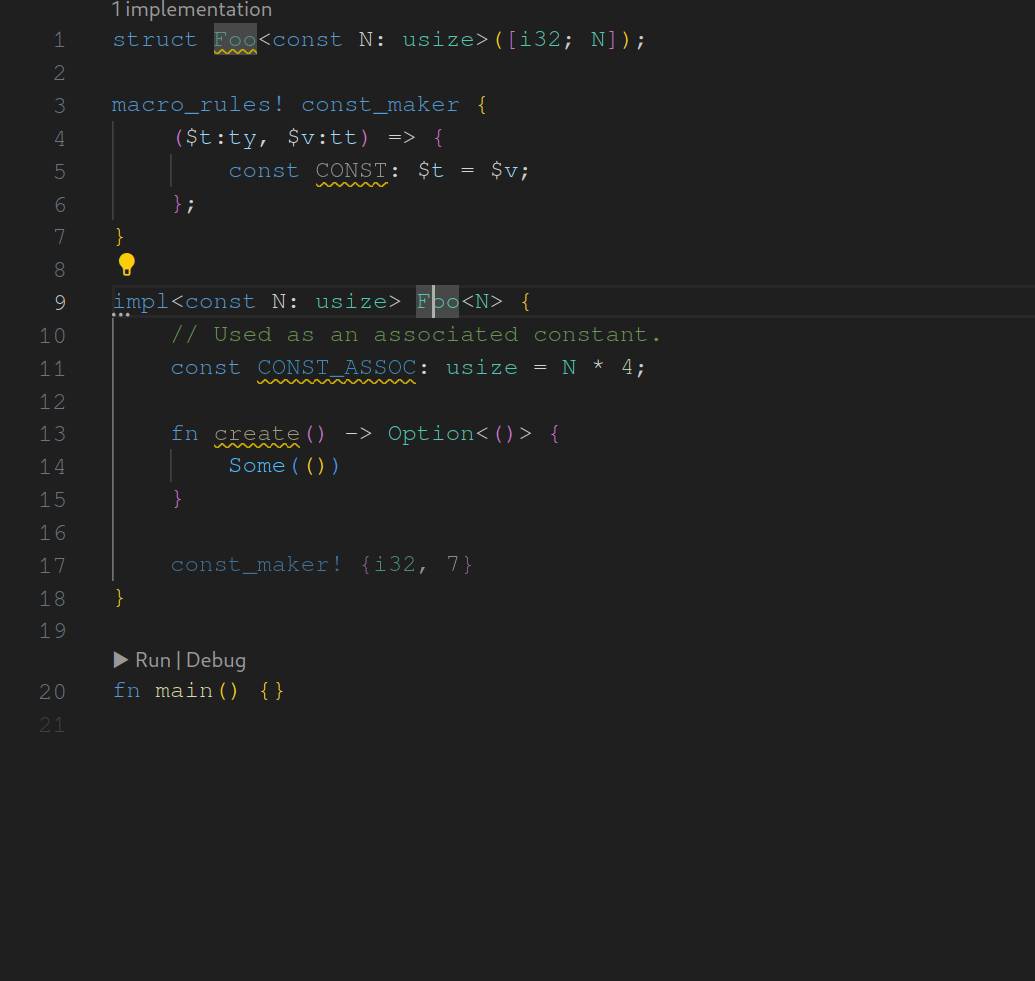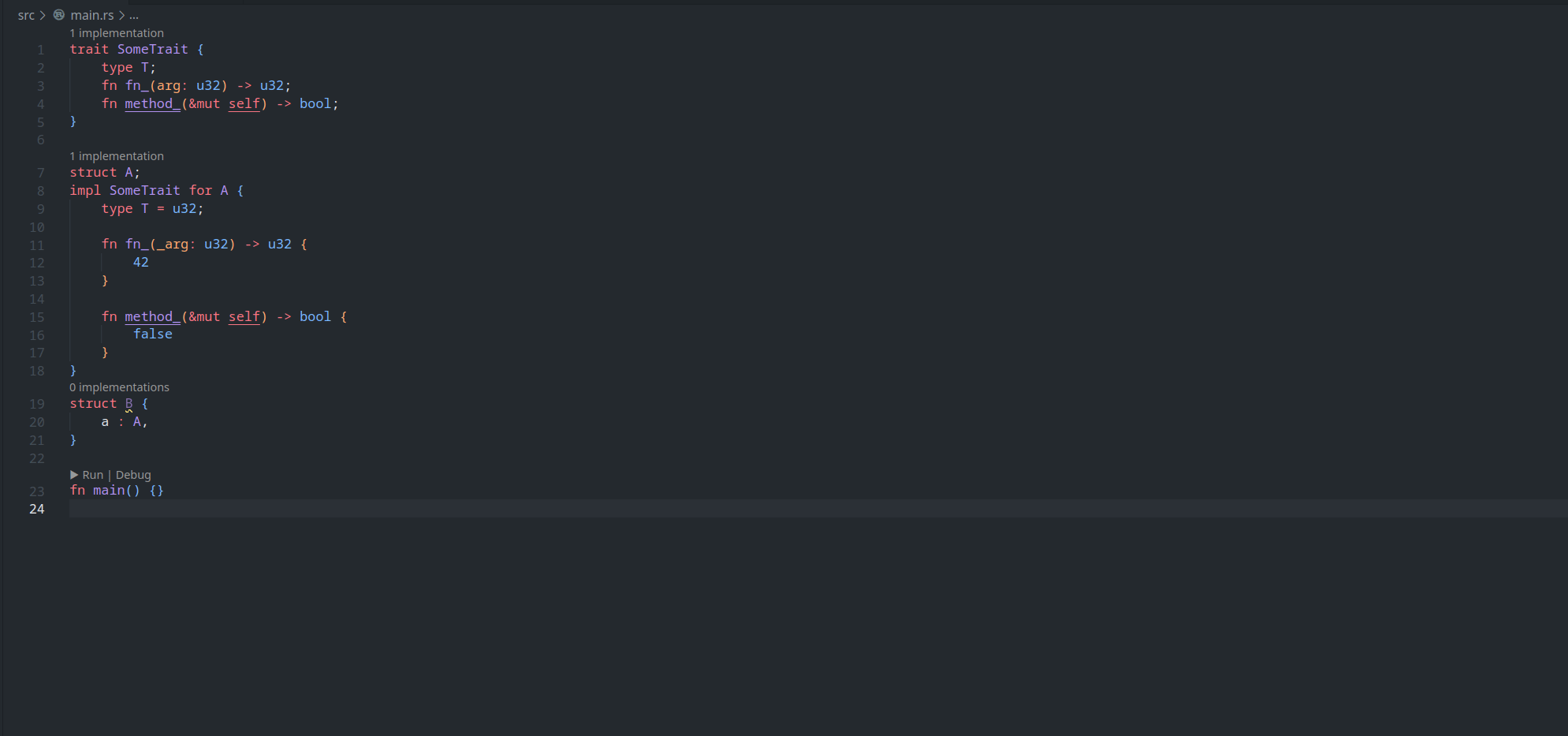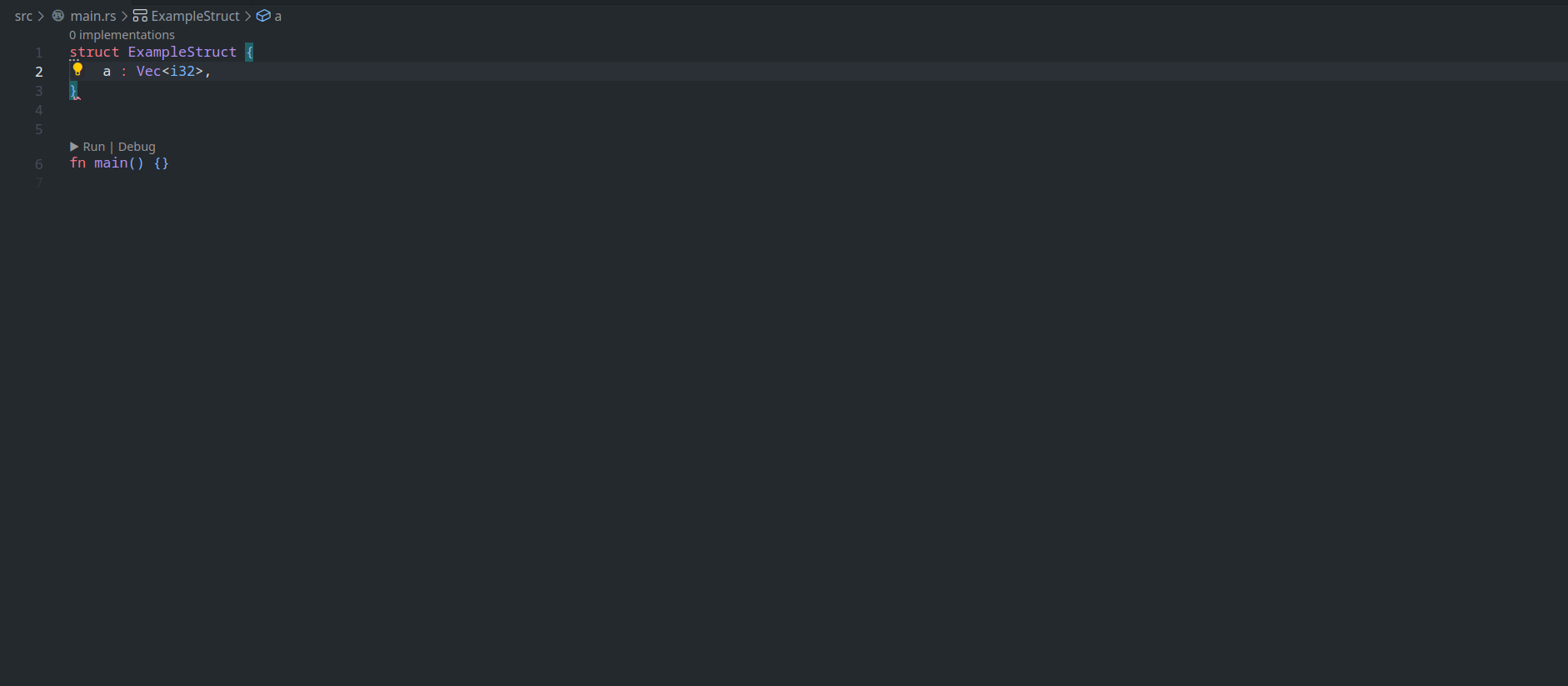Unify getter and setter assists
This PR combines what previously have been two different files into a single file. I want to talk about the reasons why I did this. The issue that prompted this PR ( and before I forget : this pr fixes#15080 ) mentions an interesting behavior. We combine these two assists into an assist group and the order in which the assists are listed in this group changes depending on the text range of the selected area. The reason for that is that VSCode prioritizes actions that have a bigger impact in a smaller area and until now generate setter assist was only possible to be invoked for a single field whereas you could generate multiple getters for the getter assist. So I used the latter's infra to make former applicable to multiple fields, hence the unification. So this PR solves in essence
1. Make `generate setter` applicable to multiple fields
2. Provide a consistent order of the said assists in listing.
Don't show `unresolved-field` diagnostic for missing names
I don't think reporting ``"no field `[missing name]` on type `SomeType`"`` makes much sense because it's a syntax error rather than a semantic error. We already report a syntax error for it and I find it sufficient.
assist : generate trait from impl
fixes#14987 . As the name suggests this assist is used to generate traits from inherent impls while adapting the original impl to fit to the newly generated trait. I made some decisions regarding when the assist should be applicable. These are surely open to discussion. I looking forward to any feedback.

Disable remove unnecessary braces diagnotics for self imports
Disable `remove unnecessary braces` diagnostic if the there is a `self` inside the bracketed `use`
Fix#15191
Support GATs in bounds for associated types
Chalk has a dedicated IR for bounds on trait associated type: `rust_ir::InlineBound`. We have been failing to convert GATs inside those bounds from our IR to chalk IR. This PR provides an easy fix for it: properly take GATs into account during the conversion.
Map our diagnostics to rustc and clippy's ones
And control their severity by lint attributes `#[allow]`, `#[deny]` and ... .
It doesn't work with proc macros and I would like to fix that before merge but I don't know how to do it.
internal: Format let-else
As nightly finally got support for it I went ahead and formatted r-a with the latest nightly, then with the latest stable (in case other stuff changed)
Split out project loading capabilities from rust-analyzer crate
External tools currently depend on the entire lsp infra for no good reason so let's lift that out so those tools have something better to depend on
Clean up `ImportMap`
There are several things in `hir_def::import_map` that are never used. This PR removes them and restructures the code. Namely:
- Removes `Query::name_only`, because it's *always* true.
- Because of this, we never took advantage of storing items' full path. This PR removes `ImportPath` and changes `ImportInfo` to only store items' name, which should reduce the memory consumption to some extent.
- Removes `SearchMode::Contains` for `Query` because it's never used.
- Merges `Query::assoc_items_only` and `Query::exclude_import_kinds` into `Query::assoc_mode`, because the latter is never used besides filtering associated items out.
Best reviewed one commit at a time. I made sure each commit passes full test suite. I can squash the first three commits if needed.
Use anonymous lifetime where possible
Because anonymous lifetimes are *super* cool.
More seriously, I believe anonymous lifetimes, especially those in impl headers, reduce cognitive load to a certain extent because they usually signify that they are not relevant in the signature of the methods within (or that we can apply the usual lifetime elision rules even if they are relevant).
Fix runnable detection for `#[tokio::test]`
fix#15141
It is hacky, and it wouldn't work for e.g. this case:
```Rust
use ::core::prelude;
#[prelude::v1::test]
fn foo() {
}
```
But it works for the tokio case. We should use the name resolution here somehow, and after that we should probably also get rid of the ast based `test_related_attribute` function.
internal: add `library` fixture meta
Currently, there is no way to specify `CrateOrigin` of a file fixture ([this] might be a bug?). This PR adds `library` meta to explicitly specify the fixture to be `CrateOrigin::Library` and also makes sure crates that belong to a library source root are set `CrateOrigin::Library`.
(`library` isn't really the best name. It essentially means that the crate is outside workspace but `non_workspace_member` feels a bit too long. Suggestions for the better name would be appreciated)
Additionally:
- documents the fixture meta syntax as thoroughly as possible
- refactors relevant code
[this]: 4b06d3c595/crates/base-db/src/fixture.rs (L450)
Fix `self` and `super` path resolution in block modules
This PR fixes `self` and `super` path resolution with block modules involved.
Previously, we were just going up the module tree count-of-`super` times without considering block modules in the way, and then if we ended up in a block `DefMap`, we adjust "to the containing crate-rooted module". While this seems to work in most real-world cases, we failed to resolve them within peculiar module structures.
`self` and `super` should actually be resolved to the nearest non-block module, and the paths don't necessarily resolve to a crate-rooted module. This PR makes sure every `self` and `super` segment in paths are resolved to a non-block module.
internal: support `#[rustc_coinductive]`
rust-lang/rust#100386 changed the trait solver so that `Sized` is treated as coinductive trait, just like auto traits. This is now controlled by the perma-unstable `#[rustc_coinductive]` attribute (rust-lang/rust#108033), which this PR adds support for.
In practice, I don't think this matters much if at all. Currently we don't give chalk enough information so chalk cannot precisely (dis)prove `Sized` bounds.
internal: Add run-tests command
This command is similar to `cargo test` except that it uses r-a to run tests instead of compiling and running them with rustc. This is slower than `cargo test` and it is only useful for me to see a bird view of what needs to be fixed. The current output is:
```
48 passed, 5028 failed, 2 ignored
All tests 174.74s, 648ginstr
```
48 is very low, but higher than what I originally thought.
Now that there is some passing tests, I can show the plan:
https://github.com/rust-lang/rust-analyzer/assets/45197576/76d7d777-1843-4ca4-b7fe-e463bdade6cb
That is, at the end, I want to be able to immediately re run every test after every change. (0.5s is not really immediate, but it's not finished yet, and it is way better than 8s that running a typical test in r-a will take on my system)
Change comparsion for checking if number is negative to include 128
The last byte in Little-Endian representation of negative integers start at 128 (Ox80) till 255 (OxFF). The comparison before the fix didn't check for 128 which made is_negative variable as false.
Potentially fixes#15096
Added a test near positive extermes and two test near negative
extermes as well one for 0.
Added a test using the `as` cast and one with comparison with 0.
feature : assist delegate impl
This PR ( fixes#14386 ) introduces a new IDE assist that generates a trait impl for a struct that delegates a field. This is a draft because the current `ide_db::path_transform::PathTransform` produces some unwanted results when it deals with extern crates, an example of which I attach as a GIF.
GIFs :
1. A general case

2. A case where `ide_db::path_transform::PathTransform` fails to correctly resolve a property ( take `Allocator` as an example ) to its full path, thus causing an error to occur. ( Not to even mention that resolving this causes another error `use of unstable library feature 'allocator_api'` to occur

Reason: The last byte in Little Endian representation of negative
integers start at 128 (Ox80) till 255 (OxFF). The comparison before
the fix didn't check for 128 which made is_negative variable as false.